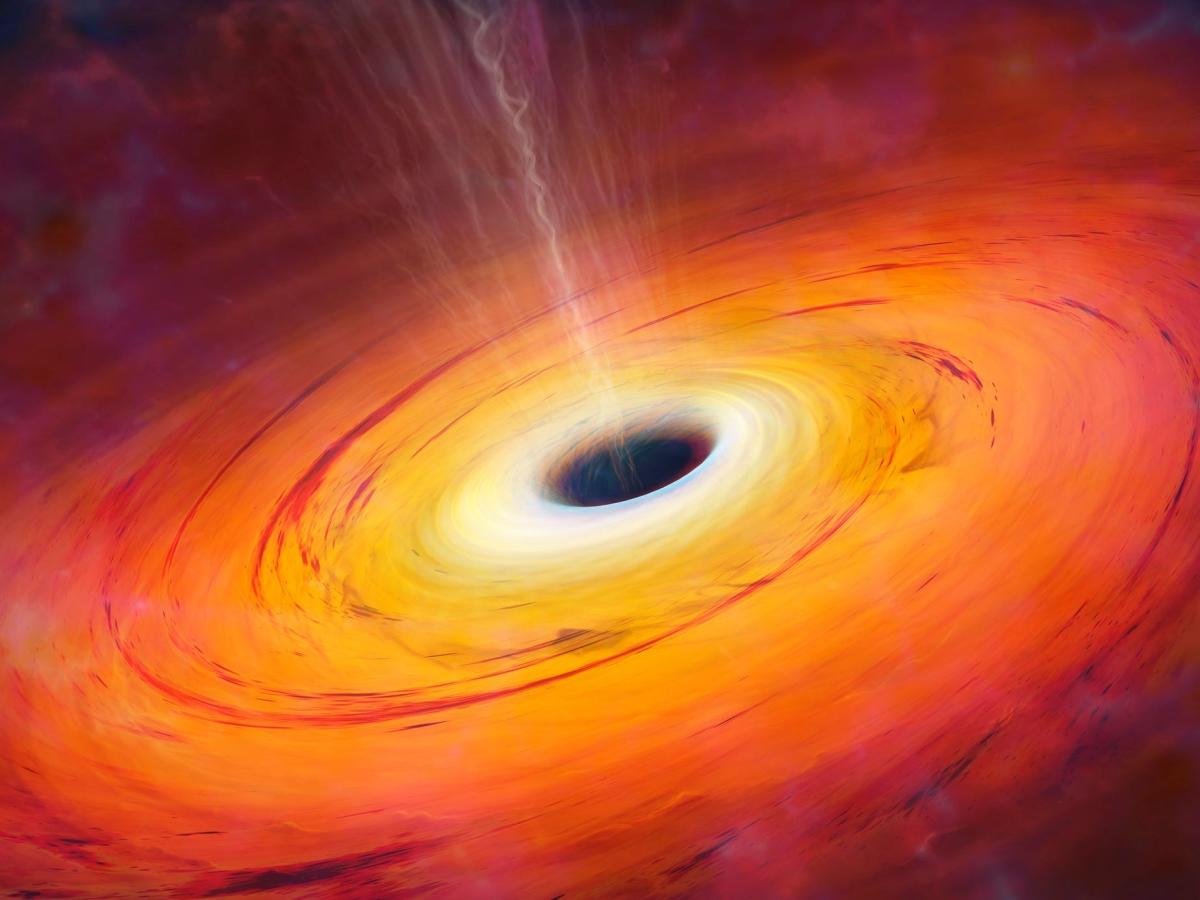-
Stephen Hawking predicted in 1974 that black holes die from evaporation.
-
But experts believe the black hole’s strong gravitational environment is unique to the theory.
-
A new study shows that the Hawking radiation that kills black holes can kill others.
Final the fate of our universe unknown. But that hasn’t stopped astronomers from trying to find out.
The latest idea for how our universe could end is that it will simply evaporate. That’s right, everything will be evaporatenew Stadiums Published in the journal Physical Review Letters.
Scientists from Radboud University have researched Stephen Hawking’s theory of how black holes die from a phenomenon now known as Hawking radiation, which was predicted by theoretical physicists in 1974.
According to quantum physics and Einstein’s theory of gravity, particles spontaneously form and annihilate under the intense gravitational environment found at the mouth of a black hole, also known as an event horizon.
Hawking calculated that sometimes these particles get trapped beyond the event horizon, but others do fled abroad In the form of Hawking radiation. Over time, quite a number of particles break off from the whole The black hole is evaporating.
Hawking radiation Observed around the black hole In our world, that confirms Late genius Forecast. And until recently, black holes were the only places experts looked.
But this new study may change that.
said study author Heino Falk-V statement Friday. “And after a very long time, it will eventually cause everything in the universe to evaporate, like a black hole.”
In the study, scientists suggest that you don’t need an environment of extreme gravity for Hawking radiation to exist.
Conversely, anything with mass that warps the fabric of space-time can trigger this radiation.
“We show that far from the black hole, the curvature of space-time plays a large role in the formation of radiation,” study co-author Walter van Soelikom said in the statement.
The scientists’ calculations will require further analysis and testing as well as observational evidence to confirm their predictions.
If their theory is correct, then there is nothing to worry about in the near future.
It takes a black hole longer than the age of the universe evaporated, the researchers estimate. While it’s unclear how long it will take for something like a star to do the same, it’s likely that our universe will remain intact for the foreseeable future.
Read the original article at Interested business
2023-06-04 00:16:51
#study #finds #Stephen #Hawkings #famous #theory #black #holes #die #entire #universe #evaporate
